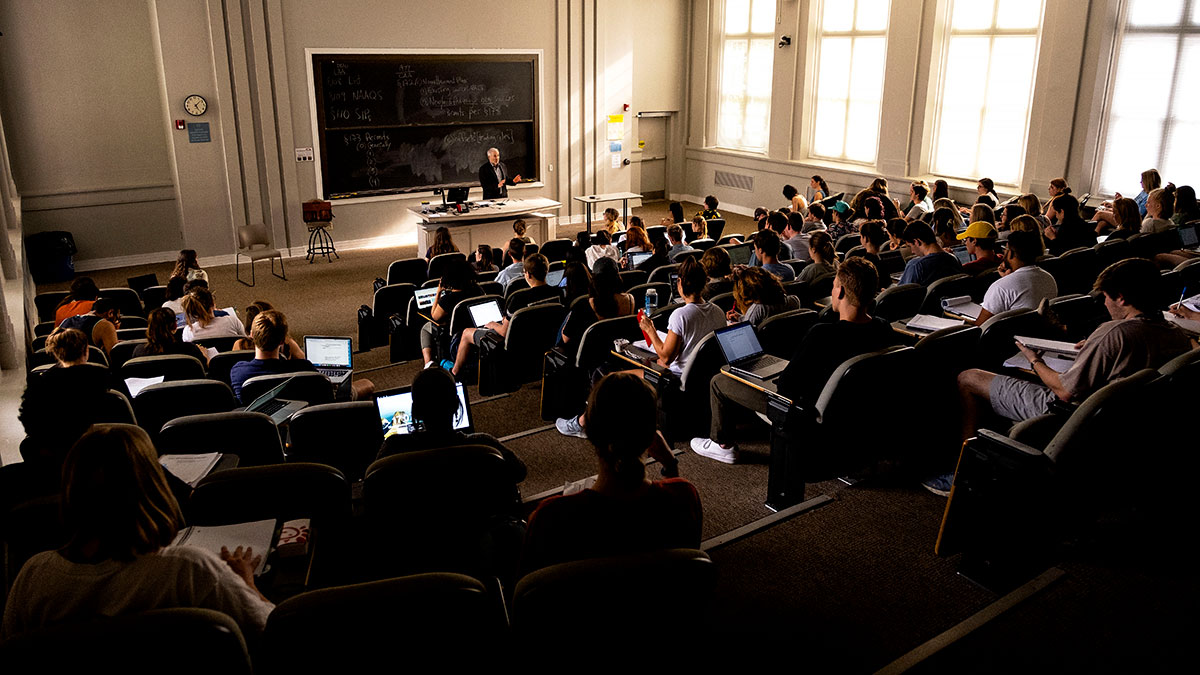Carolina’s C-STEP program expands to include Richmond Community College
C-STEP is part of Carolina’s commitment to accessibility and affordability, a core value of the University. For nearly 20 years, Carolina has pioneered initiatives to improve college affordability by striving to keep costs low for every student.

The University of North Carolina at Chapel Hill is expanding its renowned Carolina Student Transfer Excellence Program, known as C-STEP. Richmond Community College students will now have the opportunity to participate in C-STEP and earn guaranteed admission to Carolina. Eligible students can enroll as early as the fall 2021 academic semester.
C-STEP is a groundbreaking program that provides a pathway for low- and moderate-income high school and community college students to transfer into Carolina. To participate, students first enroll in an associate’s degree program at a partner college and earn a 3.2 GPA on all required coursework. Students may then apply to the C-STEP program and, once all the required coursework is complete, transfer to UNC-Chapel Hill. C-STEP launched in 2006 with the support of the Jack Kent Cooke Foundation to enable more community college students to transfer to and graduate from Carolina. Almost 800 transfer students enter UNC-Chapel Hill each year, about 39% from North Carolina community colleges.
“There are many paths to Carolina and our C-STEP students are among the most hardworking and resourceful that we’ve seen,” said Rebecca Egbert, senior assistant director of admissions and C-STEP program director. “Transfer students are valued members of our community, and we are proud to welcome students from Richmond Community College. We can’t wait to see all that they accomplish.”
C-STEP is part of Carolina’s commitment to accessibility and affordability, a core value of the University. For nearly 20 years, Carolina has pioneered initiatives to improve college affordability by striving to keep costs low for every student. It is one of the few public flagship universities to practice need-blind admissions and provide low-debt, full-need student aid. The University strives to meet the full demonstrated need of all students eligible to receive federal financial aid through a combination of grants, scholarships, and loans. C-STEP students are also eligible for the Carolina Covenant, a landmark program that enables low-income students to graduate debt-free.
“This new partnership between RichmondCC and UNC-Chapel Hill will provide many people in Richmond and Scotland counties a new and exciting path toward a Carolina degree, while enriching their academic and personal experience,” said Dale McInnis, Richmond Community College president. “Our college is proud to support UNC-Chapel Hill’s innovative efforts to expand access for our students to attend this world class university, saving them money and improving their chance to succeed. If your dream has always been to go to Carolina, C-STEP at RichmondCC can now make that dream come true.”
Once enrolled in C-STEP, the program provides transition and support services, such as dedicated academic advising from community college all the way to and through UNC-Chapel Hill as well as mentoring and networking opportunities and special seminars.
C-STEP currently serves almost 950 students, and 730 of those have already enrolled at Carolina. The remaining students are expected to enroll after completing their community college courses. As of 2019, the average C-STEP graduate GPA is 3.0 and the overall graduation rate is 81%.
RichmondCC will be the 14th community college to partner with C-STEP and Carolina. Current C-STEP partners include: Alamance Community College, Cape Fear Community College, Carteret Community College, Central Carolina Community College, Central Piedmont Community College, Craven Community College, Durham Technical Community College, Fayetteville Technical Community College, Guilford Technical Community College, Robeson Community College, Sandhills Community College, Southwestern Community College and Wake Technical Community College.




